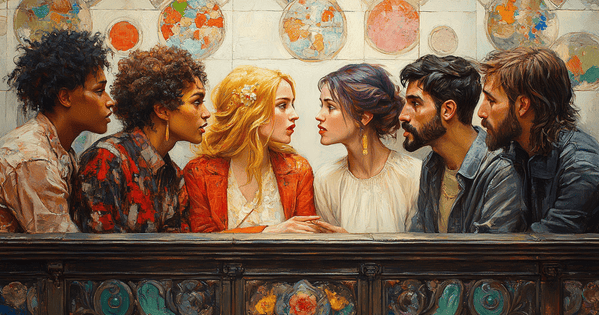

Political discourse, the lifeblood of a healthy democracy, exists on a spectrum.
At its best, it is the noble art of healthy exchanges of ideas, fostering vibrant debate, facilitating informed decision-making, and fuelling progress. It is necessary in order to define the rules of our public life, and to develop strategies and policies for the society to progress.
At its worst, it descends into a mire of division, misinformation, and hostility, eroding trust and hindering effective governance.
This duality is particularly stark today. While the ideal of open dialogue and the exchange of diverse perspectives remains essential, political discourse is increasingly marred by:
To reclaim the integrity of political discourse, we must acknowledge this dark side and work towards a more informed and constructive approach. A crucial first step is to insist on a shared commitment to factual accuracy. Opinions are subjective, but the facts should be grounded in reality. Only by engaging in honest and informed debate can we navigate the complexities of our shared political landscape and build a more just and equitable society.
Most people have more common ground than they think they do, but buy into narratives that polarize, and feed biases instead of understanding the full scope of the topic being discussed.
Censorship — Suppression of speech, public communication, or other information.
Conflict resolution — Solving problems and actively restoring peace and harmony.
Cynicism
Differ We Must: How Lincoln Succeeded in a Divided America
Disinformation — A silent assassin of democracy.
Echo chamber
Firing Line
Freedom of association — The right of people to collectively express, promote, pursue and/or defend common interests.
Freedom of speech — Freedom of speech is not what people think it is...
How to talk with victims of disinformation — Placeholder...
Logical fallacies
Populism
Propaganda
Sarcasm
Social Media and Democracy — Imagine a world where social media enhances, rather than hinders, democratic ideals.
Stochastic terrorism — Terrorism randomly incited by divisive discourse.
Truth and reality with Chinese characteristics — The building blocks of the propaganda system enabling CCP information campaigns.
Wedge issues
The Righteous Mind: Why Good People are Divided by Politics and Religion
Ali Velshi's hope for the Middle East and humanity — A moving and hopeful reflection on the ongoing conflict in the Middle East
Barack Obama: Keynote Address at the 2004 Democratic National Convention — The speech that introduced Obama to the nation and paved the way to his presidency.
Brian Tyler Cohen: Trump goes off the rails with insulting message to women
Sta Jason Stanley
Discourse analysis (DA), or discourse studies, is an approach to the analysis of written, spoken, or sign language, including any significant semiotic event.